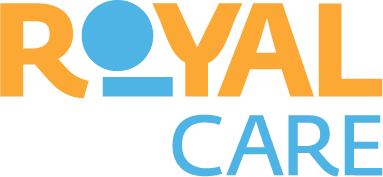Music Therapy Benefits for Seniors
By: Kayla Orange
"Music has healing power. It has a way of taking people out of themselves for a few hours."—Elton John.
The power of music has many healing abilities to help our elderly loved ones feel happy. As a matter of fact, studies have shown that music therapy itself even has the ability to help seniors overcome physical health concerns. We’re excited to share with you a few tips and success stories that provide a framework for music therapy that can easily be replicated at home and in social/recreational settings to extend its' therapeutic benefits.
Definition of Music Therapy
According to the American Music Therapy Association, music therapy can be defined as "the clinical and evidence-based use of music interventions to accomplish individualized goals within a therapeutic relationship by a credentialed professional who has completed an approved music therapy program." In other words, music therapy combines music with traditional therapies to attain specific goals established by a therapist and client.
How Does Music Therapy Work?
Music therapy works by treating the physical, emotional, cognitive, and social needs of an individual through music. During a typical music therapy session, a mental health practitioner employs one of two processes--creative or receptive, to address the patient's needs. The creative process involves having the patient create or produce music, while the receptive process encourages a patient to listen to music to promote relaxation, calmness, mental clarity, or movement. It is essential to realize that having a musical background or being musically inclined is not necessary, nor does it affect the therapeutic outcome of music therapy.
Music therapy helps with various disorders, including cardiac conditions, depression, autism, substance abuse, and Alzheimer's disease. It can also help with memory, lower blood pressure, improve coping skills, reduce stress, improve self-esteem, and positively impact many other health issues.
How Can Home Aides (HHAs) Help with Music Therapy?
The research that has been conducted and continues to be unveiled surrounding music therapy is proof that music therapy is an effective and powerful tool to combat many health impairments. Home health aides can help promote music therapy with their clients helping clients make an appointment to visit a licensed music therapist, if the client expresses interest in this, and helping ensure that they attend regular therapy sessions. Caregivers can also support their clients by providing activities involving music and simulating the techniques used in music therapy!
What Effects Can Music Therapy Have on Your Client?
Music therapy can positively affect all aspects of your client's mind, body, brain, and behavior. For example, listening to music and singing or chanting can alter mood, improve memory, slow breathing and encourage constructive changes in behavior. In addition, playing instruments and dancing to music can offer physical benefits by toning and strengthening fine and large muscles while also increasing heart rate.
Music Therapy Benefits for the Elderly
Implementing music in everyday settings between therapy sessions can significantly benefit elderly clients. Whether listening to music, dancing to music, singing a song, or playing an instrument, music in its various forms has been proven to invoke feelings of euphoria that promote relaxation, enhance mood, and reduce stress and depression. Additionally, repeatedly learning and singing a song can help to improve memory and sharpen auditory skills.
Music Therapy Techniques for Your Clients
Unlike other therapies, the techniques used during a music therapy session can be easily replicated at home. You can assist your client in practicing the techniques learned in music therapy by:
· Creating a playlist that stirs different feelings and encourages dancing or movement
· Singing songs with your client
· Having your client write a self-affirmation jingle and sing it routinely
· Attending music festivals and other events that are centered around music
· Providing instruments and activities to help your client create music – everyday household items like pots, pans, and wooden spoons, make excellent, inexpensive instruments
How Home Health Aides Can Take the First Step
Now that you know the many benefits of music therapy and how easily they can be implemented, take the first step towards helping your client gain access to it today! As a home health aide, you can help your client by making an appointment for them to attend a music therapy session, if your client expresses interest in this activity! In addition, some practitioners offer group therapy sessions, which also allow you to join your client and learn the techniques that'll be used. Then, continue reinforcing those techniques daily to assist your client in achieving optimal benefits from their music therapy sessions.
To learn more about music therapy, contact Royal Care today. We can provide professional resources and offer tips to help you implement music therapy into your client's daily routine.





